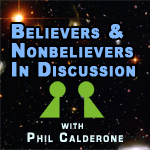All the religious wars that have caused blood to be shed for centuries arise from passionate feelings and facile counter-positions, such as Us and Them, good and bad, white and black.
-Umberto Eco
A video has been posted showing a British Christian group, Britain First, walking into a Luton neighborhood (a suburb of London) with a concentrated population of Muslim citizens, intending to antagonize them with large crosses. As expected both sides quickly engaged in angry shouting and middle-finger brandishing. The exchange is unsettling, though no violence ensued.
As demographics grow and shift we will watch this type of event happen with greater frequency. Though groups of humans will always find ways to conflict with one another there is a desire among many to have us grow out of this part of our nature. Do we really have to continue a conflict that has been raging regionally since 700 A.C.E.?
I remember watching a movie about Camelot years ago, Arthur the good king coming to power replacing the bad king of yore. It was exciting, romantic, righteous and triumphant. Years later it occurred to me that this narrowly-timed story, a mythical consolidation of English kings, would be but a happy(ish) episode in a long line of sad stories. Without a system to cultivate good kings it was likely that despicable kings would follow as common as not. The average person, largely powerless, would be dragged through the reign of one ruler after another, stability and happiness in their lives subject to rounds of Russian Roulette leadership quality. (See too Russian history when murder and assassination was the typical method of succession for centuries.)
This is how it feels watching religious adherents clash—endless rounds of righteous rivalry teeing up to claim territory. (This is not to imply that one side is better than the other. Certainly there are differences; your viewpoint can apply those labels.) Though both religions have scriptural elements that teach of peaceful coexistence they also teach the opposite, that their worldview is the holy correct one and the edge of the sword should be taken up in defense and offense. It is far too easy to cherry-pick justification into righteous conflict. From Roman era conflicts to twentieth century Christian/Protestant battles to Islamic sectarian rumbles of today, mankind has seen uncompromising threats of misery from literalists, aimed at those who do not yield from without or stay true from within.
But we no longer live in 3000 B.C.E., 700 C.E., or 1800 C.E.; we live in a time when the findings of physics, astronomy, biology, cognitive science and geology have demonstrated that the existence of deities is…no longer the most likely explanation for reality. However we are stuck with brains that evolution has provided—prone to belief. It feels archaic to be among those who hiss, fume and attack in the name of religion but this is modern. It is present day. And a few miles from such street conflicts colleges teach evolution, secular courts enforce civil laws, and stores sell meat products that have not been sorted by cloven hoof. Collectively, we are of mixed mind.
Humanity seems to be going through its adolescent phase—persisting with its early intuitions while, holding a thickening encyclopedia of new knowledge, not yet able to let the new information revise the old. This growth arc, the lifespan of intellectual humanity, seems to be thousands of years long. In maturity years we have just passed our teens.
Can we use cultural tools to help this maturation, to help strong believers get along despite their impulses to not? Hopefully but the time scale remains unknown. It will take an unprecedented shift within religious communities led by the leaders within. Sacred needs to be corralled. This is not to suggest that strong believers give up their belief; that aspiration is unreachable. But why can’t they agree to let God make the judgments in His appointed time (end of natural life) instead of mortal humans making and imposing judgments here and now? Where is the trust in the deity? Where is the mortal humility? Must we continue to site writings of human leaders, old and new, to force faith and impose harm onto others? Doesn’t our mortal imperfection disqualify us from imposing irreversible punishments on other mortal beings? Are we that arrogant, that unable to control our tribal impulses?
Scriptural interpretations are just that—interpretations. They may be flawed. This does not mean the scriptures are wrong, but our readings of them can be fallible. Every holy person who has disagreed over the smallest scriptural word, phrase or passage—over thousands of years—has proven this. Sounds like a decent basis for minimally, not harming one another.
In light of these issues, not the least of which are ongoing terrorist bombings, can we also agree to do more as a global population? How about an annual Copenhagen-style worldwide conference on the issue of religious conflict, on the scale of what we did to battle the HIV crisis? Time sensitive. High on the priority list. Ongoing. Until we are done. If we can’t evolve our biology out of religious conflict can we at least evolve our culture?



